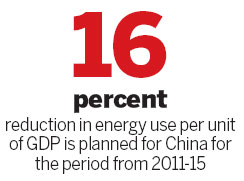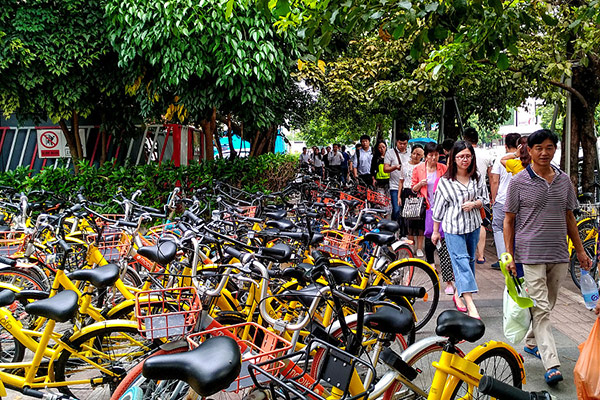Oil-rich UAE aspires to sustainable future
For Nawal Al-Hosany, there are a lot of similarities between climbing Mount Kilimanjaro and overcoming the obstacles faced by the alternative energy industry.
"You can always do better and challenge yourself," said Al-Hosany, director of sustainability at Masdar, a State-owned renewable energy company in the United Arab Emirates.
Al-Hosany was named one of the 40 most influential people who have helped shape the UAE and she is one of the first two women from the country to have climbed Kilimanjaro, the highest free-standing mountain in the world.
On her first trip to China, she came as a representative of the Zayed Future Energy Prize, an annual award that celebrates the significant achievements of people and organizations in the field of eco-sustainability.
Last year, China's BYD Motors made the finalist in the large corporation category for its contribution to the alternative-energy auto sector.
Al-Hosany said the prize is a great platform that allows Chinese energy companies to gain recognition from the international jury and find new business opportunities. However, the number of Chinese nominees for the prize is still a small percentage of the total.
Similar to challenges a mountain climber faces due to altitude and physical exhaustion, the whole globe is facing energy challenges that require international cooperation and technological innovation.
"The increasing energy demand is the main challenge for both UAE and China," said Al-Hosany during an exclusive interview with China Daily on Friday in Beijing.

"As responsible countries, both nations need to make efforts to meet the energy demand in such a way that it doesn't hurt the
China is making moves to reduce emissions, and as an oil-rich country, the UAE is also working hard on the renewable energy sector and promoting sustainable development. According to China's 12th Five-Year Plan (2011-15), the country plans to reduce carbon dioxide emissions by 17 percent per unit of China's gross domestic product over the five-year period ending in 2015. The country also aims to achieve a 16 percent cut in energy use per unit of GDP and has set a goal of lifting non-fossil-fuel energy usage to 11.4 percent of the country's total energy consumption from the current 8.6 percent. To reach the goal, the Chinese government has carried out a series of policies to promote "green cities" that achieve higher energy efficiency and reduced carbon emissions by applying renewable energy technology. Given the country's large population and scarce resources, China's urbanization must follow a sustainable path, said Li Tie, director of the China Center for Urban Development of the National Development and Reform Commission during an industrial conference early this month. He said China's urbanization can be a great opportunity for economic growth, but it also can cause economic, social and environmental problems if it is not guided correctly. "The governments should provide some incentives for people to shift their life toward a more sustainable way," said Al-Hosany. "Although UAE is an oil-rich country, people are still willing to change their lifestyle to save energy."

























